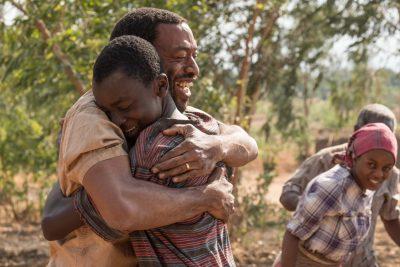
Finding the line between inspirational and disingenuous is a challenge for any filmmaker. Where is the cutoff between uplifting and insincere, between heartwarming and over-the-top?
There’s almost certainly no clear answer to this question, but “The Boy Who Harnessed the Wind,” a new film from actor-turned-director Chiwetel Ejiofor, toes this line almost perfectly to tell an important and truly inspirational tale.
“The Boy Who Harnessed the Wind” premiered in January at the Sundance Film Festival and was released on Netflix March 1. The film, based on William Kamkwamba’s autobiography of the same name, centers around Kamkwamba as a child living in the Malawi village of Wimbe and his attempt to bring wind power and, consequently, water, to his family and village.
This is, of course, much easier said than done. William hardly has the materials on hand to build a windmill, and even if he did, the village inhabitants are hesitant to place their life in the hands of the boy who makes toys and fixes radios in his free time.
Even William’s own uneducated father, Trywell Kamkwamba (played by Ejiofor himself), is initially hesitant to trust his son and instead content to helplessly farm the dry land. But Wimbe is facing a famine. The locals call it Njala, translated simply to “hunger.”
The government of Malawi refuses to officially recognize the food crisis, and any aid they do provide is expensive, disorganized and in short supply.
Additionally, at the time of this movie in 2001, the 9/11 attacks on American soil caused world markets to plummet. Hunger leads to riots, and riots lead very quickly to anarchy.
All of these factors bring the citizens of Wimbe to the brink of starvation. Some villagers, William’s sister included, leave the town altogether. Others resort to theft. Others die.
The film juggles so many multifaceted issues, and for a vast majority of the time, it does so successfully. It treats its subject matter with sobering respect, and nothing ever feels too oversimplified.
However, there is a balance to be struck between nuance and simplicity, and the film doesn’t always find it.
“The Boy Who Harnessed the Wind” has a lot to say. It touches on family, global hunger, the flaws of democracy, education, sustainability and so much more.
But each one of those topics could easily fill its own two-hour movie, and one can’t help but feel like “The Boy Who Harnessed the Wind” has a few too many irons in the fire. It at times feels unfocused, as if the filmmakers were unsure which part of the story was actually the most important.
However, many times the film gets it right, and, when it does, there are some beautiful, profoundly tragic moments on display.
Yes, the film is about overcoming hardship and surviving as a community, but the vast majority of its runtime is rather bleak. Even as the film closes on an undeniably uplifting note, one can’t help but feel the weight of loss from the previous two hours.
Ejiofor, of “12 Years a Slave” fame, doesn’t seems like a first-time director. Many times he is content to leave the camera perfectly still and let the action move in and out of frame at its own speed.
Other times there are beautiful, wide shots of the African countryside that dwarf William, emphasizing the monumental task he faces.
Many of these decisions are those of a veteran director, and the prospect of what Ejiofor will do next behind the camera is already an exciting one. As if writing and directing the film was not enough, however, Ejiofor also gives the best performance in the film with his portrayal of Trywell Kamkwamba.
Trywell is a simple man, caught between two worlds. He shuns the traditions of his ancestors but resorts to praying for rain nonetheless. He cares about nothing more than providing for his family, but he also feels called to leave them and attend political protests.
Ejiofor captures this divide within the character with a brilliant, subdued performance. Trywell rarely loses his temper but when he does, he erupts. Ejiofor’s passionate, heartbroken screaming in these sequences is incredibly powerful.
The other performances in the film are by no means subpar. Newcomer Maxwell Simba, who plays William, gives a phenomenal debut performance. The emotional impact and turmoil of the story is on display in every one of the actors’ performances.
Exploring Trywell’s character a bit more and digging into his relationship with his son could have made for a better story, one that could bring an emotional complexity to a film that’s already intellectually dense.
“The Boy Who Harnessed the Wind” is an inspiring, well-made and important film, and there’s no doubt about that. It could benefit from a tighter focus at times, but at its core, it is still a well-told story of what it means to overcome, persevere and, maybe most importantly, survive

















































































































